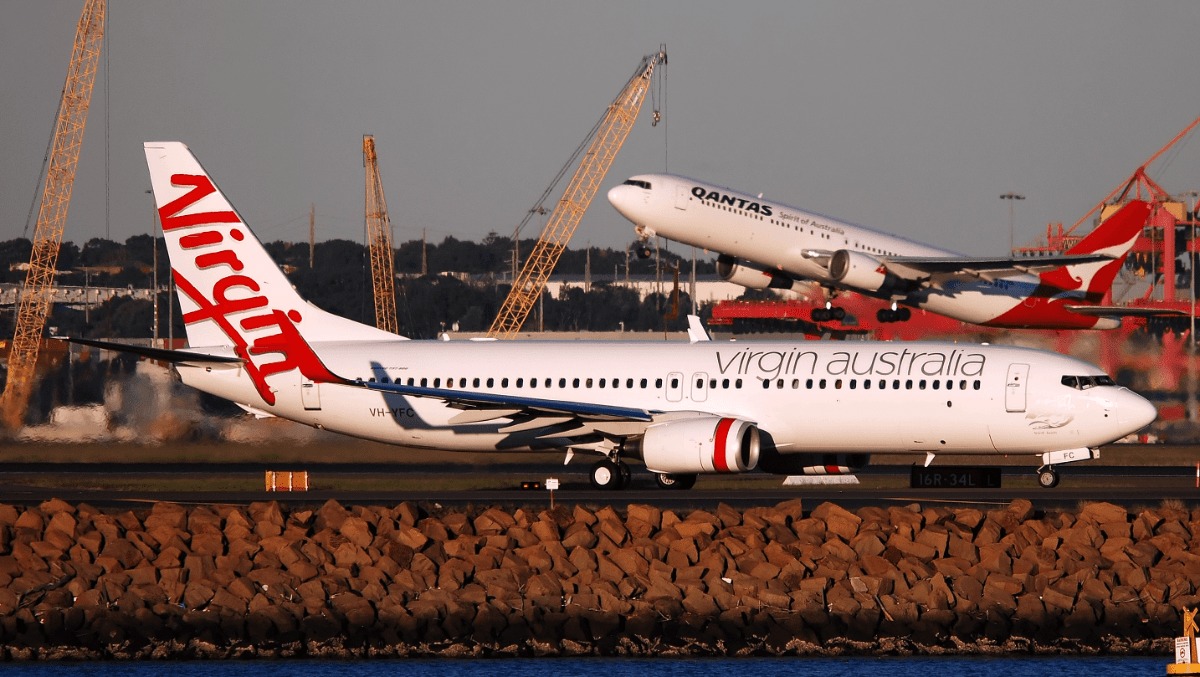
Qantas and Virgin have both criticised “monopoly airports” in their respective responses to the Government’s Aviation Green Paper.
The two major airlines are calling for “more effective” regulation of Australia’s airports, with Qantas in particular branding them “effectively unregulated monopoly infrastructure” and Virgin saying they impose “inefficient costs on the travelling public”.
“While their owners deserve to make a reasonable financial return, the Group’s submission highlights examples of ‘Airports Behaving Badly’ due to the lack of checks and balances on their conduct around contract negotiation,” the Flying Kangaroo said in a statement.
“Modest reform within the existing light-handed regulatory framework will unlock immediate benefits and place downward pressure on fares.
“After airports rejected a mutual code of conduct with airlines in 2022, the Qantas Group calls for access to an independent and binding dispute resolution to deliver meaningful reform and mandating the Aeronautical Pricing Principles (which are non-binding and routinely ignored) across all airports.”
In its submission, Virgin Australia said airport charges, levies and fees are the airline’s third largest operational cost burden after fuel and labour, and that operators “no longer perceive any credible threat of regulation”.
“Monopoly airports are able to discriminate between airlines, in both overt and non-transparent ways, including by charging some airlines substantially higher charges for access to the same services and facilities and/or by providing preferential treatment to some airlines in the delivery of services (e.g. exclusive or preferential access to different parts of an airport, management rights within airport terminals, signage and branding rights, etc),” the submission read.
“Where this occurs, it can ultimately be damaging to competition between airlines using the same airport infrastructure and may ultimately result in the inability of one or more airlines to compete on particular routes because those differentiated costs of access to the same essential airport infrastructure put them at such a severe competitive disadvantage.”
Both airlines have signalled they support reform of the slot system at Sydney Airport, with Qantas in particular pointing to the findings of the Harris Review as a model.
The Australian Airports Association’s (AAA) Green Paper response earlier this month accused airlines of hoarding slots under the current 80/20 rule and said domestic aviation is “one of the most concentrated markets in Australia”.
“Qantas Group and Virgin Australia account for 95 per cent of market share in the domestic aviation market. Compared to other sectors of the economy, the domestic aviation market is highly concentrated,” the AAA’s submission read.
The Green Paper, weighing in at more than 200 pages, covers areas including the transition to net zero, consumer protections, competition and aviation affordability.
- SEO Powered Content & PR Distribution. Get Amplified Today.
- PlatoData.Network Vertical Generative Ai. Empower Yourself. Access Here.
- PlatoAiStream. Web3 Intelligence. Knowledge Amplified. Access Here.
- PlatoESG. Carbon, CleanTech, Energy, Environment, Solar, Waste Management. Access Here.
- PlatoHealth. Biotech and Clinical Trials Intelligence. Access Here.
- Source: https://australianaviation.com.au/2023/12/qantas-and-virgin-want-reform-of-airport-monopolies/



